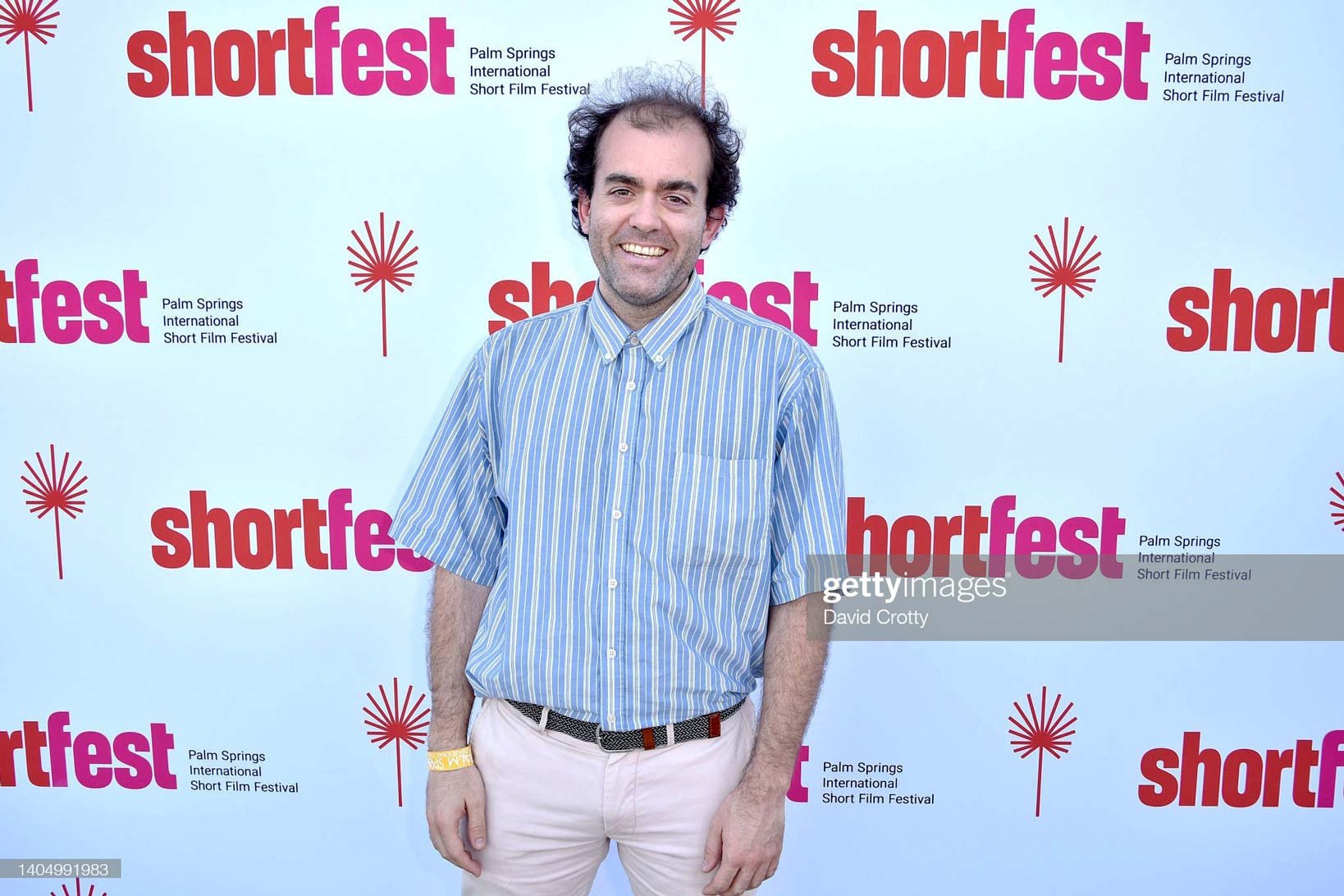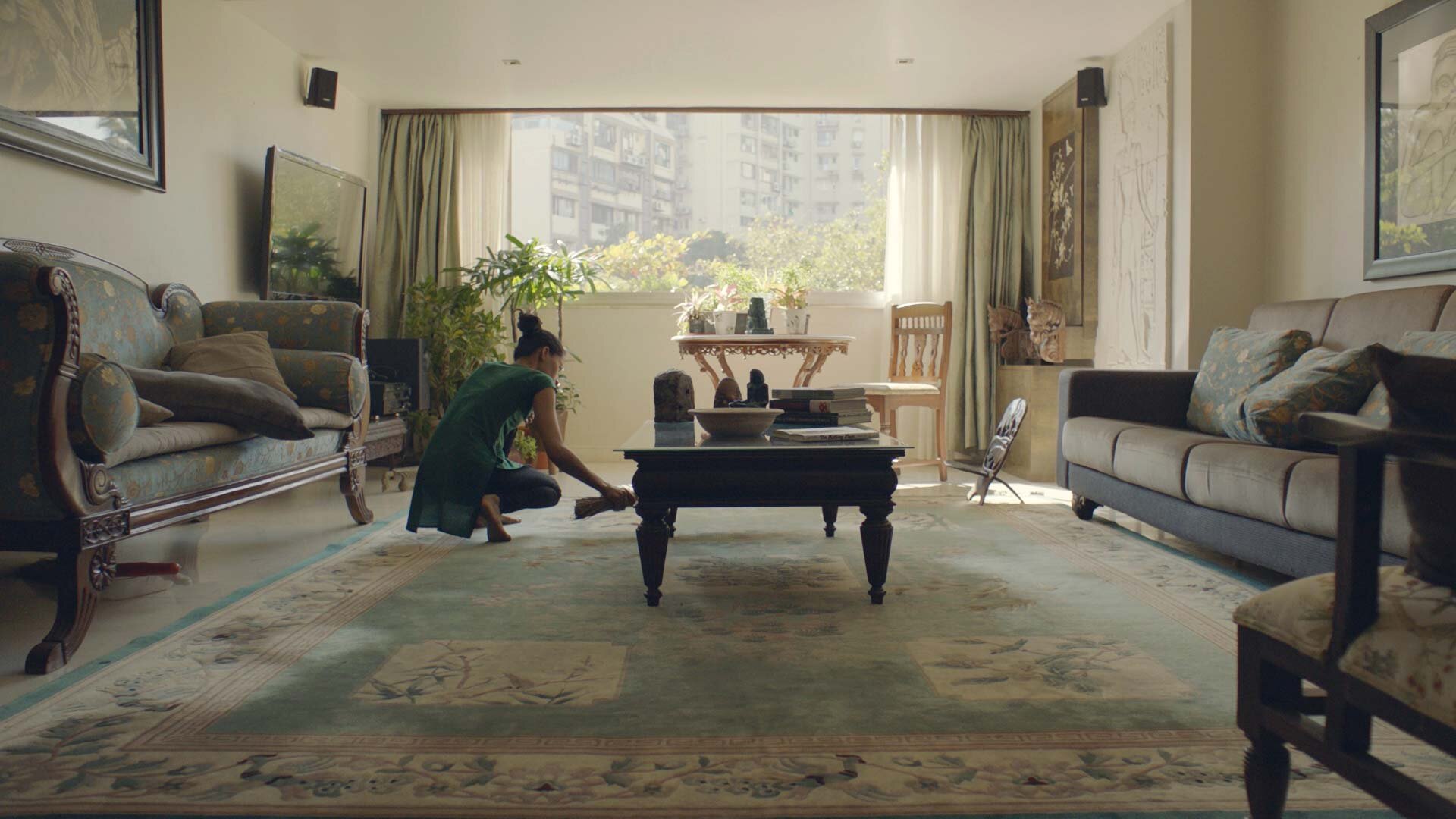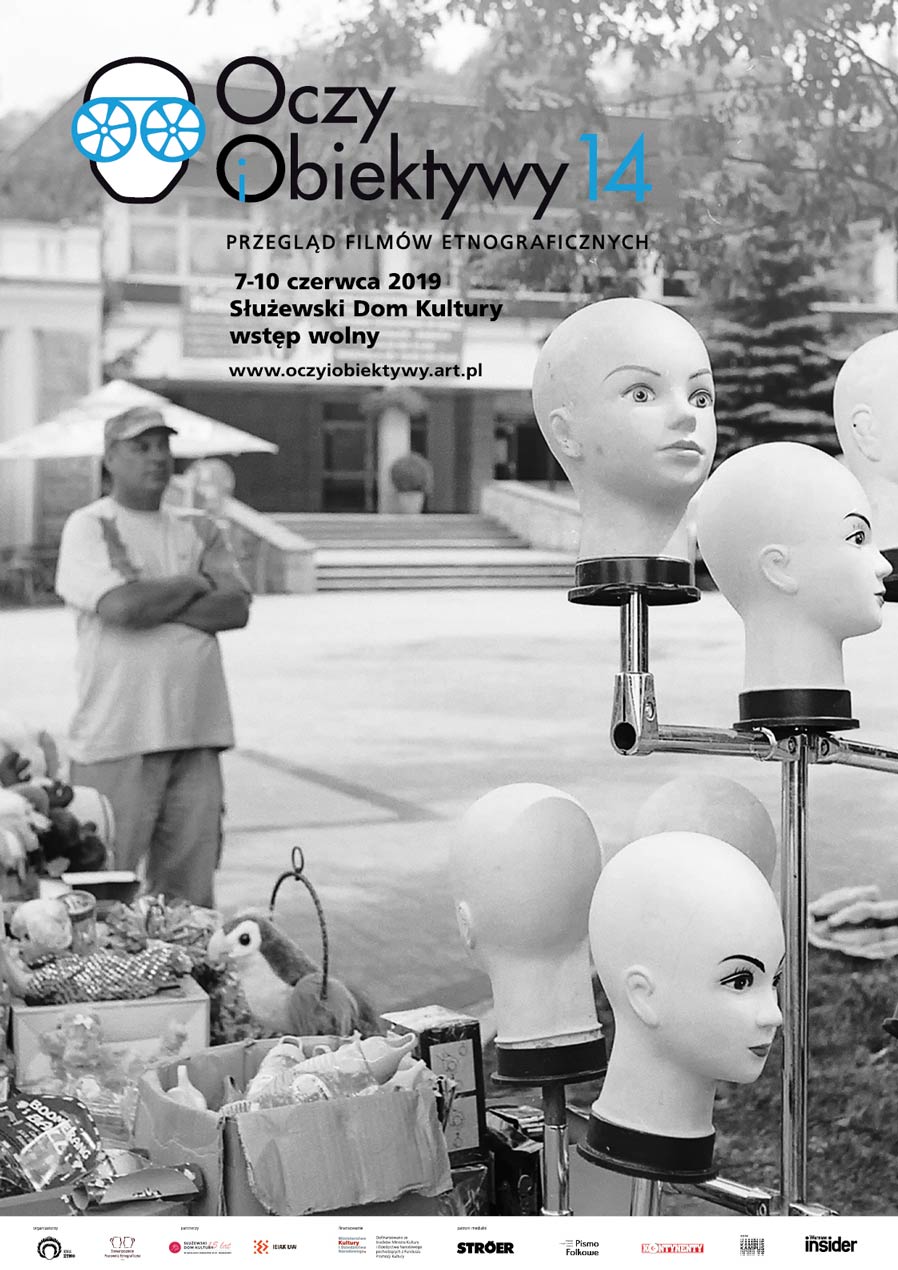Martinez: I remember while we were writing the script, Alisha said something very funny to me...that she couldn't ever envision the film in a close-up. It's almost like her brain had a block where it just all took place in single wide takes that cut into each other.
Tejpal: Yeah, that's true. I do think the film benefited from my not-yet-advanced filmmaker brain in the sense that when it came to editing, I was still unable to fully comprehend shot sizes. So, my natural go-to response has always been wides. The framing of the film was very much an attempt at maintaining distance from the lead as a constant reminder to the audience that the filmmaker is of a different class and caste, right? That the filmmaker is an outsider, and I’m not in any way proposing to give a voice or be a voice for the various actors. They have their own voices and very much have the agency for it. That isn't my job or my place to do. In some ways that dictates the distance, as well as this repetitive reminder, even to the viewer, that we are looking into a life that also has its own privacy. We had a rule with our DP (Director of Photography, Ravi Kiran Ayyagari) that no matter what, the camera always stays at eye level. Even if it's not the best, most beautiful frame – we meet Lata at eye level, no matter what. As much as you are getting access to, I am getting access to as well. The access, in this case, is being controlled by Lata and protecting and preserving her own privacy as well.
PROTECTING THE VISION
Martinez: It's a very close creative collaboration. I was a co-writer and a producer and a creative producer. I think all of those roles may sound like a lot, but to me they make sense. The writing component was the one that stuck more to being a co-writer, whereas the other roles merged into one, becoming a facilitator for Alisha's vision – also a protector of the vision itself. Firstly, you're supposed to take care of getting what you actually need for the film. I think for awhile she (Alisha Tejpal) had a very strict, theoretical idea of what she wanted the film to be. But the whole time I was like, "Okay, I understand that it has to hit these aesthetic constraints that you want to reach. And you want it to do XYZ on a theoretical claim, but where’s the meat? So, a lot of our co-writing exercises were more about dragging out the meat and putting it on the page. The script. As a producer, it was just about—
Tejpal: As a protector.
Martinez: (Laughs) …as a protector.
Tejpal: I want to know this too.
Martinez: I think as a director, if you're doing too much, you’re bound to stray away from the thing you want to make. I remember that because I'm also a filmmaker and I definitely struggle, or have struggled in the past from trying to do too much, which I think is part of what makes me a reasonably good producer.











